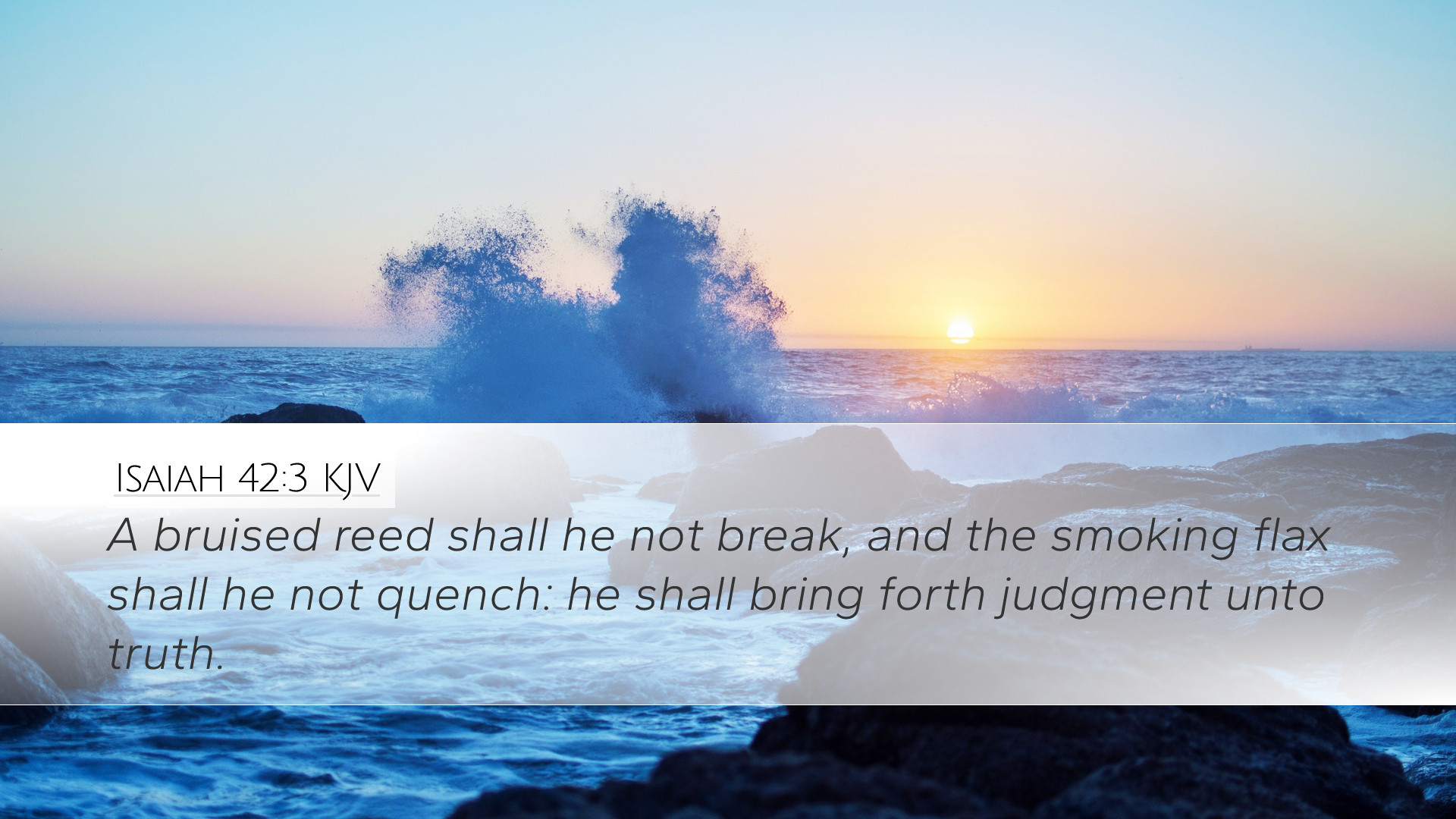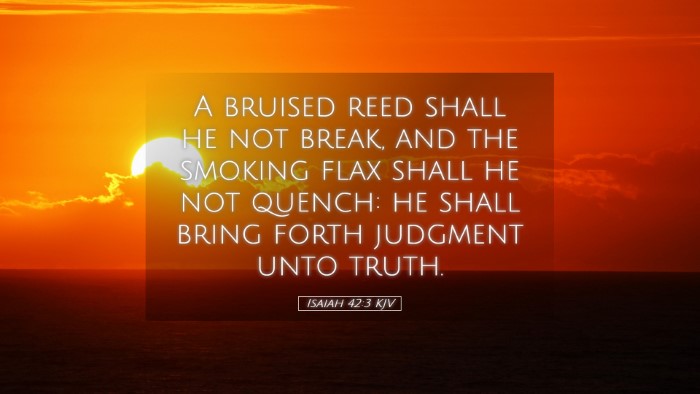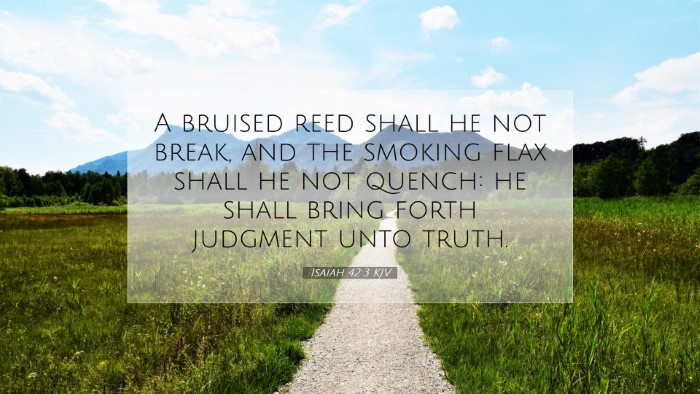Commentary on Isaiah 42:3
Verse (Isaiah 42:3): "A bruised reed shall he not break, and the smoking flax shall he not quench: he shall bring forth judgment unto truth."
Introduction
The verse Isaiah 42:3 is a remarkable passage that reflects the character and ministry of the Messiah, encapsulating themes of mercy and justice. This verse is often cited in discussions of the nature of Christ's mission. Understanding its depth requires careful examination of the socio-historical context, theological implications, and its relevance for today.
Contextual Background
Isaiah, a major prophet of the Old Testament, speaks to a people in distress. The Israelites faced oppression from foreign nations and the consequences of their own disobedience to God. In this chapter, the prophet presents a vision of hope through the coming Servant of the Lord—who we understand as Jesus Christ.
Key Themes
- Judgment and Justice: The "judgment" referenced here is not merely punitive but relates to establishing righteousness and truth.
- Gentleness and Compassion: The imagery of a "bruised reed" and "smoking flax" illustrates Christ’s gentle nature and His ability to restore rather than destroy.
Exegesis of Key Phrases
"A bruised reed shall he not break": This metaphor signifies those who are weak, broken, or in a state of despair. The image of a reed, typically fragile, captures the essence of humanity's frailty. As Matthew Henry notes, “Christ does not deal harshly with the weak; instead, He extends His hand to lift them.”
"The smoking flax shall he not quench": This phrase symbolizes something that has lost its vitality. The "smoking flax" can represent those whose faith is faltering or diminished. Albert Barnes emphasizes that Christ’s role is not to extinguish the flickering flame of faith but to restore it to a full blaze. His ministry is one of renewal.
"He shall bring forth judgment unto truth": Here, the term “judgment” embodies a holistic view of justice—restorative, not merely retributive. Adam Clarke points out that the Messiah’s judgment is characterized by truth that leads to righteousness and deliverance—reflecting God’s character and promises.
Theological Insights
This verse provides rich theological reflections regarding the nature of God as compassionate and just. Through Christ, we see the fulfillment of God’s promises to His people, especially to the marginalized and oppressed. The dual aspects of judgment and mercy exemplified here reflect the harmonious nature of divine justice, where grace prevails.
Application for Today's Believers
- Empathy and Ministry: Believers are called to reflect Christ's attitude towards the wounded. The church must embody compassion, reaching out to those who are bruised, broken, or doubting.
- Encouragement in Weakness: This passage serves as a profound encouragement to those who feel incomplete or lacking in faith. The assurance that Christ does not discard the fragile should give hope to all.
Conclusion
Isaiah 42:3 stands as a powerful testimony to the nature of Christ and His mission. The prophetic words reveal God's heart towards humanity, showing that He desires restoration and truth. As we engage with this text, let it compel us towards greater compassion, echoing the gentle and restorative spirit of our Savior.
Reflection Questions
- In what ways can I embody Christ’s compassion towards those who are hurting in my community?
- How does understanding the gentleness of Christ influence my perception of justice and judgment?
- What steps can I take to encourage those who may feel like “smoking flax” in their spiritual journey?


